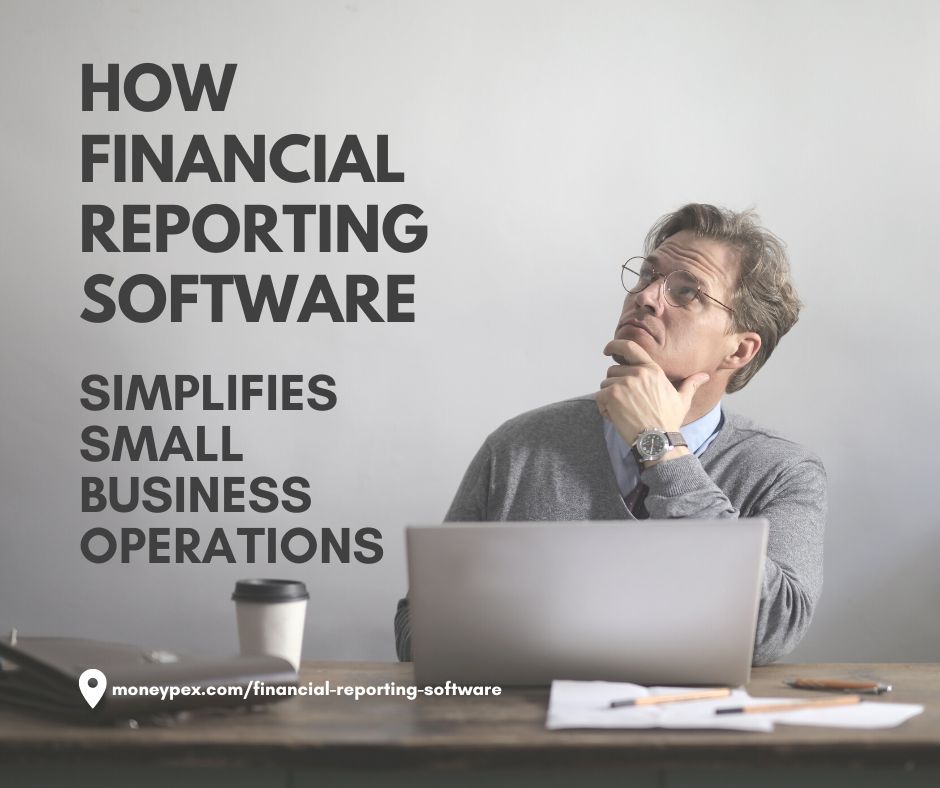In the dynamic landscape of small business operations, entrepreneurs face multifaceted challenges, ranging from managing finances to optimizing resource allocation. One of the most critical aspects of small business management is financial reporting. It not only ensures compliance with regulatory requirements but also provides insights crucial for informed decision-making. As businesses strive for efficiency and accuracy, the role of financial reporting software emerges as a transformative solution. In this article, we delve into the significance of financial reporting software in simplifying small business operations.
Understanding Financial Reporting Software
Financial reporting software refers to computer programs designed to streamline the process of generating, analyzing, and presenting financial information. These software solutions automate various accounting tasks, including bookkeeping, budgeting, invoicing, and generating financial statements. They integrate with existing accounting systems, offering a comprehensive platform for managing financial data.
Streamlined Bookkeeping and Accounting
For small businesses, maintaining accurate financial records is paramount for sustainable growth. Financial reporting software simplifies bookkeeping and accounting processes by automating repetitive tasks such as data entry, transaction recording, and reconciliation. By capturing and categorizing financial data in real-time, these software solutions provide businesses with up-to-date insights into their financial health.
Automation features within financial reporting software significantly reduce the likelihood of human errors, ensuring data integrity and compliance with accounting standards. Moreover, by centralizing financial information in a digital format, businesses can easily track expenses, monitor cash flow, and identify areas for cost optimization.
Read More: Unveiling the Truth: Busting the Top 5 Myths About Chevrolet Cars
Enhanced Financial Analysis and Decision-Making
In the competitive business environment, data-driven decision-making is essential for staying ahead of the curve. Financial reporting software empowers small businesses with advanced analytical capabilities, enabling them to extract valuable insights from their financial data. Through customizable dashboards, graphical representations, and interactive reports, businesses can visualize key performance indicators (KPIs) and trends, facilitating informed decision-making.
By leveraging financial reporting software, small businesses can conduct comprehensive financial analysis, such as variance analysis, trend analysis, and profitability analysis. These analytical tools help businesses identify patterns, detect anomalies, and forecast future financial performance with greater accuracy. Armed with actionable insights, entrepreneurs can devise strategic initiatives, allocate resources effectively, and capitalize on emerging opportunities.
Compliance and Regulatory Requirements
Navigating through complex regulatory frameworks is a challenge faced by many small businesses. Compliance with tax laws, accounting standards, and industry regulations is essential for avoiding penalties and maintaining the trust of stakeholders. Financial reporting software plays a pivotal role in ensuring compliance by automating regulatory reporting and adherence to accounting principles.
By staying abreast of regulatory updates and incorporating compliance features, financial reporting software helps small businesses streamline the preparation of financial statements, tax filings, and audit documentation. Additionally, these software solutions facilitate collaboration with external stakeholders such as auditors, regulatory agencies, and financial advisors, ensuring transparency and accountability in financial reporting practices.
Improved Operational Efficiency and Scalability
Efficiency and scalability are fundamental prerequisites for the sustainable growth of small businesses. Financial reporting software optimizes operational workflows by eliminating manual inefficiencies and streamlining repetitive tasks. With features such as automated invoicing, payment processing, and bank reconciliation, businesses can accelerate their financial processes and reduce administrative overheads.
Moreover, as small businesses expand and evolve, scalability becomes a critical consideration. Financial reporting software offers scalable solutions that can accommodate growing volumes of financial data, users, and transactions. Cloud-based platforms provide businesses with flexible access to their financial information anytime, anywhere, facilitating remote collaboration and decentralized decision-making.
Cost Savings and Return on Investment (ROI)
For small businesses operating on tight budgets, cost-effectiveness is a decisive factor in adopting new technologies. Financial reporting software offers tangible cost savings by reducing the need for manual intervention, minimizing errors, and optimizing resource allocation. By automating routine tasks and streamlining workflows, businesses can reallocate human capital to strategic initiatives that drive growth and innovation.
Furthermore, the return on investment (ROI) of financial reporting software extends beyond monetary savings. By enhancing financial visibility, mitigating risks, and fostering informed decision-making, these software solutions contribute to long-term profitability and sustainability. The ability to forecast cash flows, identify cost-saving opportunities, and capitalize on market trends enables businesses to achieve their strategic objectives and outperform competitors.
Conclusion
In the fast-paced world of small business management, leveraging technology is indispensable for staying competitive and driving success. Financial reporting software revolutionizes the way small businesses manage their finances, offering streamlined workflows, actionable insights, and compliance assurance. By automating bookkeeping, enhancing financial analysis, ensuring regulatory compliance, and promoting operational efficiency, financial reporting software empowers entrepreneurs to focus on what matters most – growing their businesses.
As small businesses embrace digital transformation, the adoption of financial reporting software emerges as a strategic imperative. By harnessing the power of technology, businesses can unlock new opportunities, mitigate risks, and achieve sustainable growth in an increasingly complex and dynamic business environment. In essence, financial reporting software serves as a catalyst for innovation, efficiency, and resilience, enabling small businesses to thrive in the digital age.
